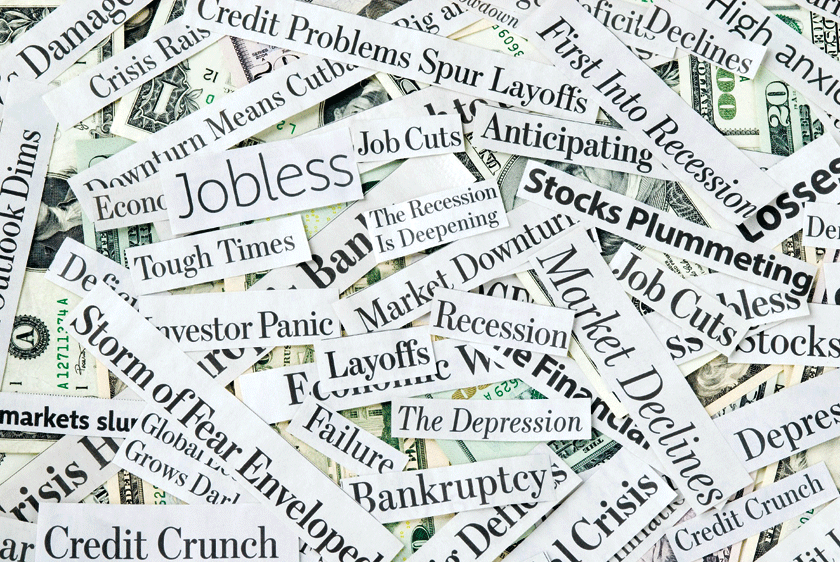By Izzud deen Redzuan
As a developing country, without an exception, Malaysia is facing serious challenges and crisis that can affect the economic growth, its performance and how the world view us.
Malaysia is going through the falling value of its currency due to the global demands of oil particularly in US and the fact that oil is one of Malaysias main exports, the declining price of Brent crude oil eventually reduces the demand and hit our Ringgit.
Thats on the surface only. In reality, it affects Malaysian wholly especially right after the implementation of the Goods and Services Tax (GST). With the GST of 6% being implemented in April last year, some Malaysian households have reduced their household spending due to the increase in prices.
Indeed, it is a good initiative by Malaysian households, indirectly helping them to save money for future usage, however, the low rate of economic growth is mainly because of the lower consumption and cash-flow internally followed by the rise of inflation, revision of foreign worker tax as well as the GST compliance.
In 2016, the growth of private sector is below average unlike five years ago. Under pressure of higher tax compliance and foreign worker, most of existing multinational companies have suffered the consequences which led to companies taking drastic steps to reduce cost through downsizing.
A more simplistic way to view the economic crisis is by comparing the situation with the road accidents that cause heavy traffic. Why? Because, it will slow down the traffic flow and cause congestion. Secondly, it also involves many parties, internally and externally, to solve the crisis and cause harm towards the car crash. Lastly, other drivers who are using the same road have to face a long haul traffic jam and cause them to reschedule their activities.
Similarly, the economic crisis has affected the country greatly not only slowing down the economic growth and activities, but also involving several parties such as invasion of external parties to solve the problem.
Apart from the country being affected, it is also felt by the people, especially amongst the bright youths who are still in their tertiary phase of studying.
For example, the recent case of 150 Malaysian medical students in Egypt. They are forced with a situation to drop their studies as they faced a massive RM4.5 million-debt over the falling value of the ringgit and the exchange rate to pay their tuition fees which came up to RM33,033 (US$8,000) annually.
Local students also face the same obstacles particularly those who are opting to pursue their Master or PhD. Last year alone, the Public Services Department (PSD) and MARA (Majlis Amanah Rakyat) students have has to change their status of full-loan scholarships into study loan, which put them into bigger debt.
Students who are planning to pursue their studies abroad need to rethink because the exchange rates on the US dollar and British pound against the weakening value of Malaysia ringgit would mean paying a much higher cost.
Alternatively, the Ministry of Higher Education has introduced MyBrain15 to increase the number of professionals with a postgraduate certification among Malaysians through public universities and private education institutions. In fact, Universiti Malaya (UM), Universiti Putra Malaysia (UPM) and Univerisiti Teknologi Malaysia (UTM) Â are among the top universities in Asia.
In Malaysia, some universities are training their students to live independently outside the main campus, however, the reality have changed due to the high cost of living after the implementation of GST for students to keep up with their daily basic spending, and paying of accommodation rentals amidst mobility of the oil prices.
It is an unpleasant news for young and fresh graduates. Each year, more than 200,000 students graduate from higher learning institutions in Malaysia. Surprisingly, one in four graduates remain unemployed six months after graduating and 43.44% of unemployed graduates are from social sciences studies as of 2016.
After the public and private sectors have limited the intake for new position, fresh graduates have no choice but to accept jobs which are not related to their qualification in order to survive this crisis while paying study loan.
Nevertheless, Malaysia’s economy is still growing at 5 per cent in the first quarter of 2016 and is among the top three countries in the Southeast Asia behind the Singapore and Brunei Darussalam.
Under the leadership of Prime Minister, Dato’ Sri Mohd Najib Tun Razak, hopefully the Economic Transformation Programme (ETP) formulated in 2010 would achieve it aims of making Malaysia’ economy prosper and gain a developed-nation status by 2020.
Or would it really be achieved under the present circumstances given a tough situation Malaysia is faced with right now? ***
Photo of Economist
